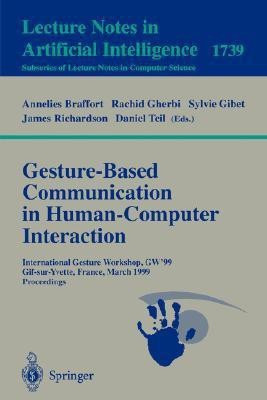Gesture-Based Communication in Human-Computer Interaction(English, Paperback, unknown)
Quick Overview
Product Price Comparison
The need to improve communication between humans and computers has been instrumental in de ning new modalities of communication, and new ways of interacting with machines. Gestures can convey information for which other modalities are not e cient or suitable. In natural and user-friendly interaction, gesturescanbeused,asasinglemodality,orcombinedinmultimodalinteraction schemes which involvespeech,or textual media. Speci cation methodologiescan be developed to design advanced interaction processes in order to de ne what kind of gestures are used, which meaning they convey, and what the paradigms of interaction are. Research centred on gesture interaction has recently provided signi cant technologicalimprovements, in particular: gesture capture and tra- ing (from video streams or other input devices), motion recognition, motion generation, and animation. In addition, active research in the elds of signal processing, pattern recognition, arti cial intelligence, and linguistics is relevant to the areas covered by the multidisciplinary research on gesture as a means of communication.Resulting fromathree-dayinternationalworkshopin Gif-sur-Yvette,France, with 80 participants from ten countries all over the world, this book presents contributions on gesture under the focus of human-computer communication. The workshop was run by Universit e Paris Sud, Orsay, on the lines of GW'96 at York University, UK, and GW'97 at Bielefeld University, Germany. Its purpose was to bring together scientists from researchand industrial organisationswo- ing on all aspects of gesture modelling and interaction. The book is organised in sixsections,coveringhumanperceptionandproductionofgesture,gestureloc- isation and movement segmentation, vision-based recognition and sign language recognition, gesture synthesis and animation, and multimodality.


